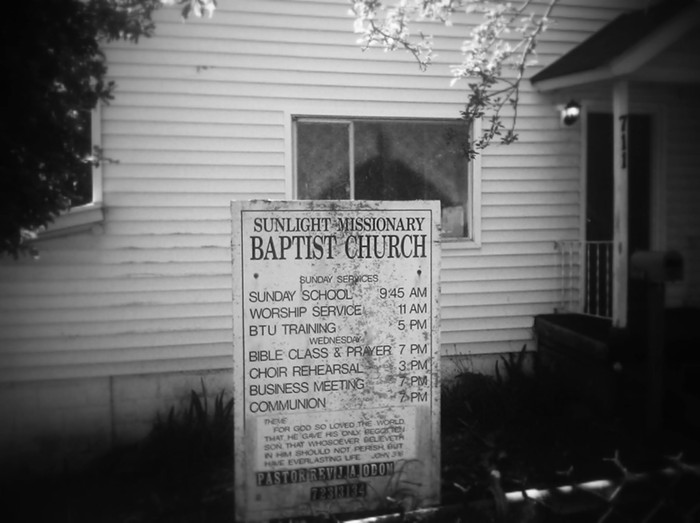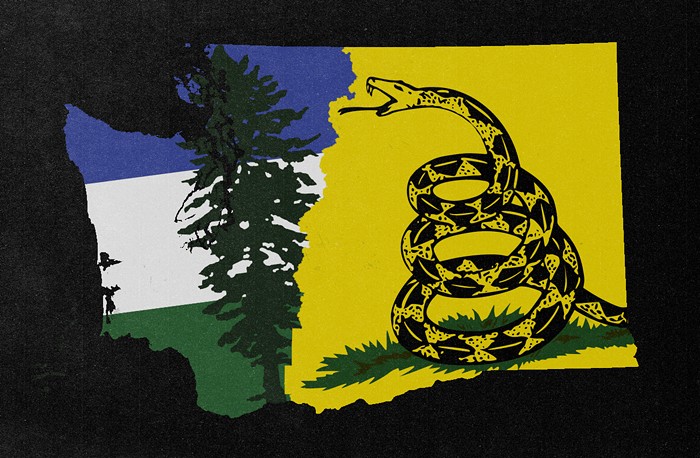
Imagine you are about to eat lunch when you notice that your hands are filthy, probably because you’ve spent the morning splashing around in an open sewer.
“I should wash my hands before eating this sandwich,” you think to yourself, but you don’t. You eat the sandwich. It’s egg salad, and then you go back to the sewer. “I really should clean these hands,” you think, but you still don’t. Not today, not the next day, not for weeks and months and years. Your hands are filthy. You’re gross. You get food poisoning and you die.
That’s basically where we’re at with a clean fuels standard right now. We know that we’re poisoning the air with dirty fossil fuels, we’ve known it for decades, and we’re maybe, maybe about to wash our hands so we stop dying so much. A little bit. More like scrubbing a pinkie. Still, it’s a start!
The Senate Ways & Means Committee was scheduled to vote yesterday afternoon on a bill that would require that fossil fuels sold in Washington meet a certain low-carbon threshold, but they postponed the vote mid-meeting, likely to hammer out some amendments. “I suspect the bill is going to end up being voted out of committee later this week,” wrote the sponsor, Rep. Joe Fitzgibbon. It’s currently scheduled for a vote on Thursday.
The bill, HB 1091, would force dirty fuel producers to either clean up their act or pay a fee to continue polluting. (It is bonkers that “continue polluting” is even an option, but I guess that’s the world we live in. While it lasts.)
“This is foundational,” said Leah Missik, Washington Transportation Policy Manager at the nonprofit Climate Solutions. She spoke Tuesday on a conference call hosted by Washington’s Environmental Priorities Coalition, a partnership between a bunch of major enviro groups.
Missik pointed out that this isn’t just a climate issue, it’s also a social justice issue, since pollution hits communities of color the most, and “folks who have been exposed to air pollution long-term are more susceptible to COVID.”
You will not be surprised to learn that the fossil fuel industry is opposed to cleaner fuel regulations, with the Western States Petroleum Association bankrolling a front-group called “Affordable Fuels Washington” to try to block its passage. Dirty-fuel industry groups are particularly concerned, Missik said on yesterday’s call, because Washington has some of the highest profit margins in the country when it comes to gasoline, according to a report from the Oil Price Information Service.
But you might be more surprised to learn that some Democrats opposed the House version of the bill, which, come on, you guys, do better. The handful who voted against it in the House were generally concerned that it would raise fuel prices; but other states that implemented similar bills haven't seen any such correlation. The oil industry disputes that characterization, but seems to point to normal fluctuations in gas prices to support their claim. California, Oregon, and British Columbia are the states and provinces that already have clean fuel standards, which means “Washington is the hole in the west coast,” Missik added. Put that on a bumper sticker.
And, Missik said, “we’re paying the cost already—and it’s being borne by low-income folks—of climate change.”
Also worth noting: The clean fuels standard is supported by a ton of medical groups — the American Academy of Pediatrics, The American Academy of Physicians Washington State, The American Lung Association, Virgina Mason, The Washington State Nurses Association, The Washington State Medical Association (you know, the people who arguably want humans to actually be alive) and a wide range of labor groups.
The fate of the clean fuels bill may be tied to a whole bunch of other legislation currently up for consideration, part of what’s being called the “Grand Bargain,” yes, really, that’s what they’re calling it. What’s bonkers is that nobody really knows what the bargain will actually entail — it’s just sort of a general vibe that it sure would be nice to pass some enviro bills, and that everyone knows that’s going to involve some amount of compromise on both sides.
So, we might get a clean fuels standard, but no protection for salmon. Or we might get wildfire protections deferred for a couple years so the timber industry will relax, and then that’ll provide the policial cover necessary to pass a cap-and-trade bill, and then THAT will take the place of the clean fuels bill. It’s a big weird game of chess right now, with the fun twist that people are literally dying.
But EPC insists that the clean fuels standard will exist outside of whatever the Grand Bargain winds up being, if it winds up being anything.
“It does not need to be part of a Grand Bargain,” said Clifford Traisman, a lobbyist for Washington Conservation Voters. “If there is a Grand Bargain, there won’t be one without the clean fuels standard.”
Either way, on yesterday’s conference call, Bryce Yadon with the Transportation Choices Coalition pointed out that whatever we’re doing right now to make Washington cleaner just isn’t working.
“We’ve done this,” Yadon said on the call. “We’ve done it for years and years. Let’s shift away.”















